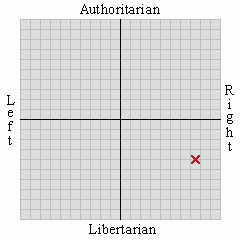First of all, I apologise for not posting in a while - although exams are over, life has been hectic.
David Cameron hits the right notes with the briefing for his speech on regulatory reform. Having already been told by Osborne that the FSA would be scrapped, we have an idea of how banks would be regulated.
It makes sense for the central bank to regulate - it knows how much banks are borrowing, knows what the economy is doing, and so on - after all it has to set interest rates every month. Not only this, but we are told that the Bank of England warned the FSA about the risks taken, but the FSA took no action - incompetence.
Breaking up RBS/HBOS is a welcome step too - no bank should become too big to fail, and no bank should be bailed out by the government - the economy is better off without bad banks.
However the MPC especially has to look at the prime cause of the financial crash - keeping interest rates too low for too long and encouraging over-borrowing. The only viable solution would be to allow the market to set interest rates, since it is more efficient than nine central bankers. That way, as demand for borrowing increases, interest rates are raised by banks to get a greater return and to encourage saving to build up a capital base; in the same way interest rates will fall if banks want to encourage borrowing. I know it isn't a perfect theory, but should be more efficient than the current macroeconomic consensus we have today.
Monday, 20 July 2009
Banking regulation
Labels:
Bank of England,
banking,
David Cameron,
FSA,
interest rates,
MPC,
regulation
Subscribe to:
Post Comments (Atom)





No comments:
Post a Comment
Comment on posts here, and all posts whether critical or in agreement are fine as long as they are not abusive. Comments are moderated due to Chinese spambots.